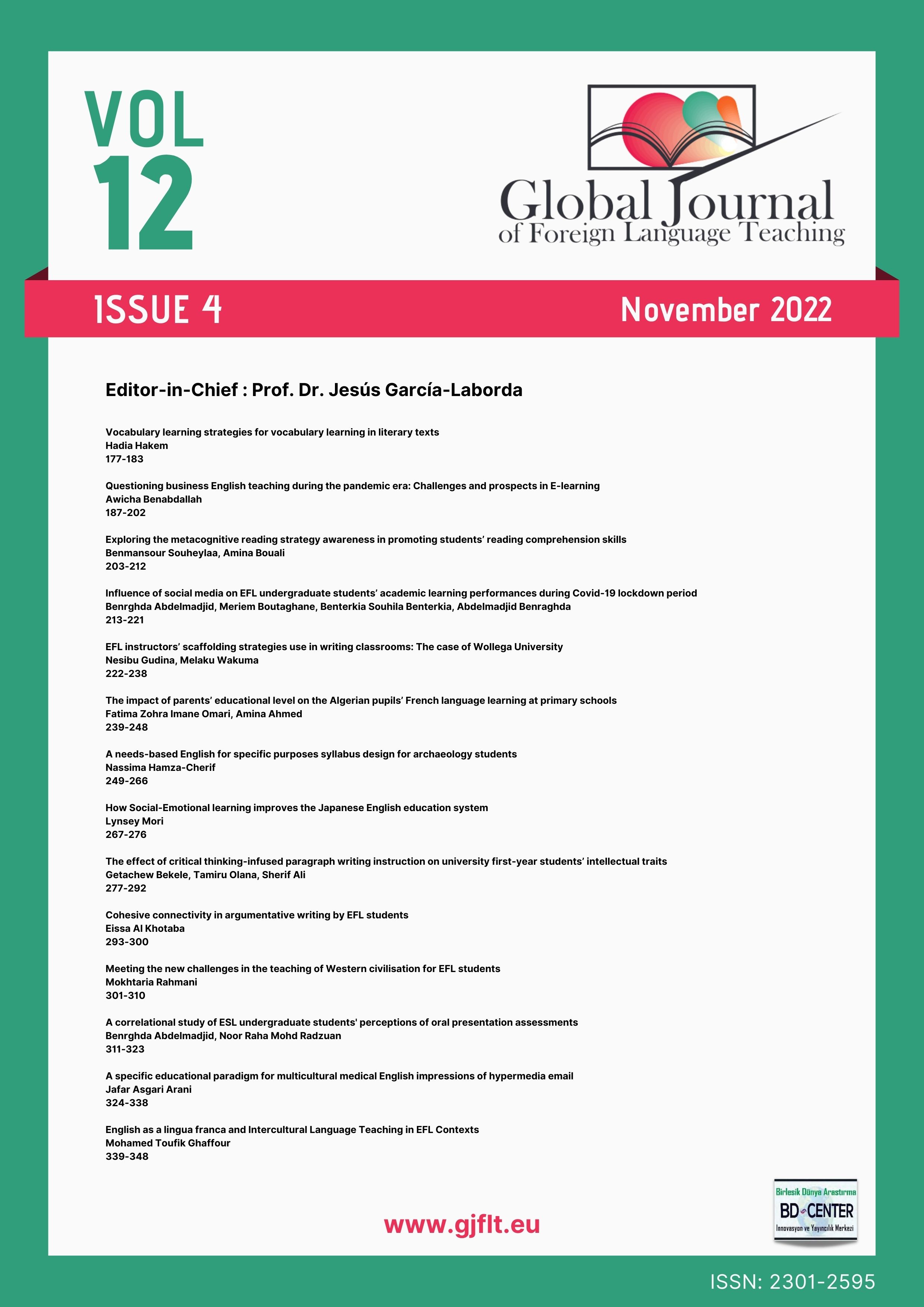A needs-based English for specific purposes syllabus design for archaeology students
Main Article Content
Abstract
Learning the English language is important for archaeologists as they need to be good at communicating with a large range of audiences. This paper aims to suggest an ESP syllabus that is suitable for archaeologists. To reach this end a case study of Archaeology Master One students at the University of Tlemcen (Algeria) was undertaken. First, these students’ needs were identified and analyzed. Then, according to the findings, an appropriate syllabus with adequate tasks was suggested. To fulfill the first step of this research and analyze students’ needs, a student questionnaire and three structured interviews were used. The results revealed that in terms of learning needs, archaeology students were highly motivated towards learning English, yet they lacked self-confidence. Regarding the target needs, they needed the development of the four language skills. Thus, archaeology students required appropriate English language tasks to achieve communicative purposes. Accordingly, the English for Archaeology syllabus with appropriate tasks was suggested to answer students’ English language needs.
Keywords: Archaeology; ESP; English; language skills; Syllabus design; teaching task.
Downloads
Article Details

This work is licensed under a Creative Commons Attribution-NonCommercial-NoDerivatives 4.0 International License.
Authors who publish with this journal agree to the following terms:- Authors retain copyright and grant the journal right of first publication with the work simultaneously licensed under a Creative Commons Attribution License that allows others to share the work with an acknowledgement of the work's authorship and initial publication in this journal.
- Authors are able to enter into separate, additional contractual arrangements for the non-exclusive distribution of the journal's published version of the work (e.g., post it to an institutional repository or publish it in a book), with an acknowledgement of its initial publication in this journal.
- Authors are permitted and encouraged to post their work online (e.g., in institutional repositories or on their website) prior to and during the submission process, as it can lead to productive exchanges, as well as earlier and greater citation of published work (SeeThe Effect of Open Access).
